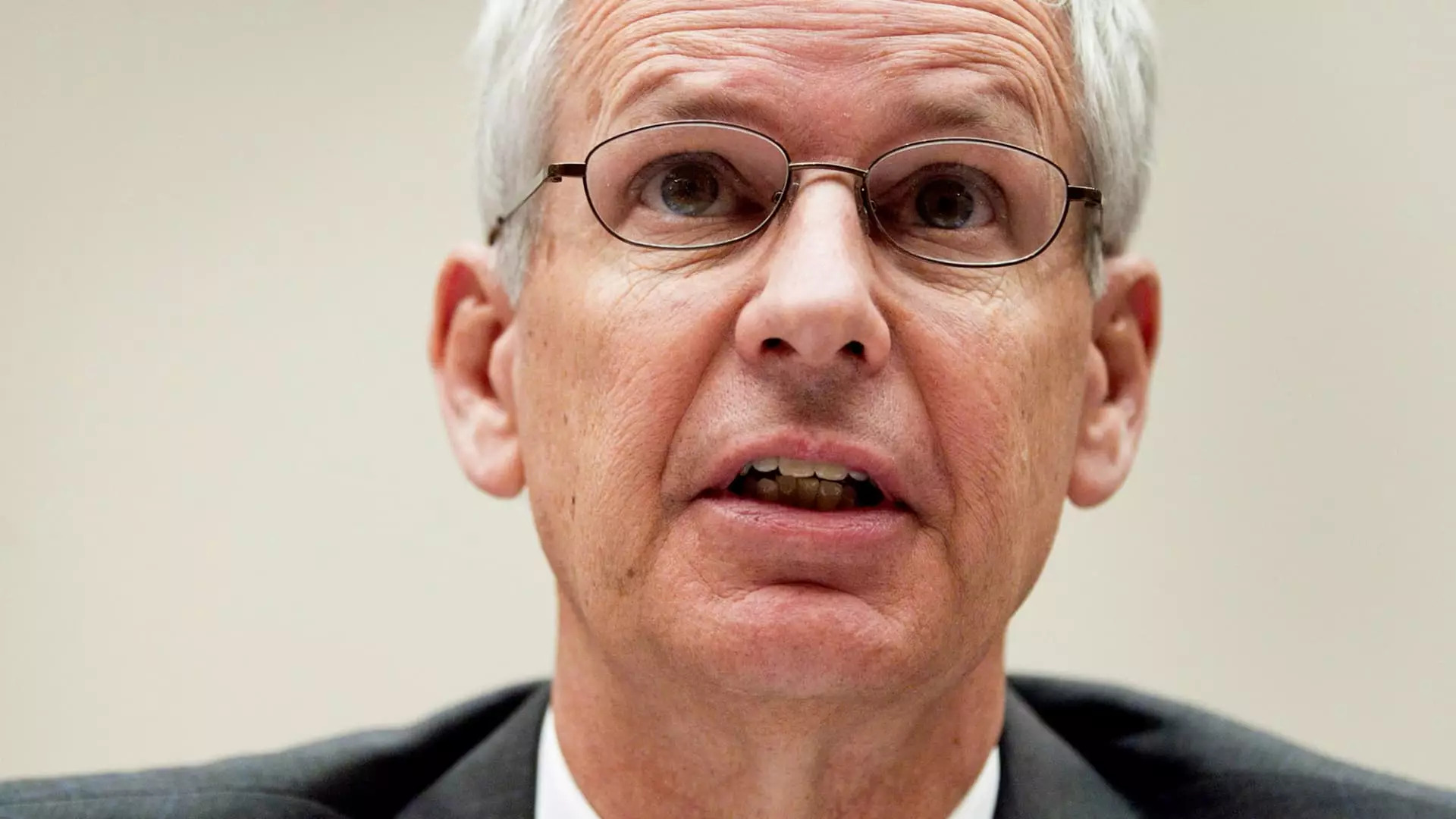The narrative surrounding Dish Network has taken a turn reminiscent of the final episodes of iconic television shows—profundity swallowed up by disappointment. Since co-founder Charlie Ergen first invoked the beloved sitcom “Seinfeld” during an earnings call back in 2011, it seems his expectations of a grand finale have faced harsh reality. Much like the show’s notorious ending, Dish’s path forward culminated in its acquisition by DirecTV for a mere token sum of one dollar, paired with an overwhelming $9.75 billion in accompanying debt.
The mention of “Seinfeld” highlights a critical point: what begins with multiple threads often lacks a cohesive direction. With more than a decade since Ergen first likened Dish’s strategy to the sitcom, it is clear that viewers—much like investors—struggle to connect the dots between its aspiring wireless ambitions and the declining pay-TV model.
As illustrated by the data, Dish and DirecTV have jointly hemorrhaged an astonishing 63% of their video subscribers since 2016. The broader context reveals an industry grappling with transformation as streaming services and high-speed broadband providers become dominant players. The implications of changing viewer preferences are profound, rendering traditional satellite television nearly obsolete.
EchoStar CEO Hamid Akhavan aptly noted the rapid decline of the content-distribution industry. The traditional customer base is evaporating, raising questions about how legacy companies can adapt. Rapid technological advancements have redefined viewer engagement, leading to a paradigm shift away from conventional television consumption.
In contrast, the enterprise value of Dish has also followed a downward trajectory; from being valued as a competitor in 2014 when merger discussions with DirecTV contemplated a combined value of over $68 billion, to its reckless decline as the company now faces a severe cut in shareholder value. The irony of Dish’s fate underscores the growing disconnect between market valuation and operational viability in a world that appears increasingly indifferent to satellite TV.
A Failed Vision
While some might argue that Dish was courageous in attempting to pivot toward wireless telecommunication, this venture has mostly been met with a series of setbacks. The purchase of Boost Mobile for $1.4 billion, a strategic move intended to bolster its wireless aspirations, has instead left the company struggling to secure sufficient capital for both their satellite television services and necessary network buildout. The narrative grows increasingly tragic as Akhavan admitted that management distraction hindered the firm’s focus and execution.
The ambition to marry both pay-TV and wireless services has morphed into an internal schism that only further complicated company dynamics. In the face of seismic shifts in technology and viewer preferences, the duality of service offerings has only sapped resources rather than enhanced profitability.
As observers reflect on the comparison between Dish’s decline and the much-criticized finale of “Seinfeld,” it is essential to recognize the relevance of managing expectations. Dish had set its viewers—namely, investors and customers—anticipating a spectacular resolution of its various endeavors. Instead, it presents a mirror image of inevitable disappointment.
Reflecting on Ergen’s metaphor of fingers representing various pathways, it has become increasingly clear that the attempt to juggle multiple business identities conferred more distraction than direction. This multifaceted approach has culminated in an identity crisis, leaving its legacy both convoluted and diminished in an era of simplicity and specialization.
The story of Dish Network serves as a potent reminder of the volatile nature of the entertainment industry, where adaptability and focus are paramount. The legacy of a once-prominent player has been relegated to the annals of cautionary tales, where too many plot lines only result in unresolved narratives and a poor finale. As the curtain falls on its pay-TV legacy, the need for decisive transformation and innovation remains imperative for any company hoping to thrive in this fast-evolving landscape. The tragedy of Dish’s journey echoes in the hearts of investors and viewers alike, leaving an indelible mark of what could have been.


Leave a Reply